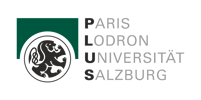KoWi Salzburg auf der AoIR 2024 in Sheffield
Diese Woche nehmen Mitarbeiter:innen unseres Fachbereichs an der diesjährigen Konferenz der Association of Internet Researchers (AoIR) in Sheffield teil. Sie werden ihre neuesten Forschungsarbeiten zu aktuellen Themen der digitalen Gesellschaft und Kommunikation vorstellen und mit internationalen Expert:innen diskutieren. Die Konferenz bietet eine wertvolle Plattform für Austausch und Kooperation in der Internetforschung.
Überblick über die Vorträge der Forscher:innen
1. Visual Trust on Social Media – Meaning, Money and Motivation
- Referent:innen: Katrin Tiidenberg (Tallin University), Jaana Davidjants (Tallin University), Gillian Rose (University of Oxford), Josie Hamper (University of Oxford), Maria Schreiber, Marius Liedtke
- Zeit: 31.10.2024, 13:30-15:00 Uhr
- Ort: INOX Suite 2
Abstract
This decade has been characterized by a deep crisis of trust and legitimacy, which is linked in complex ways to digital technologies and modes of communication. This panel focuses on the role of visuality in trust. It starts from the premise that images are increasingly used to express reliability and trustworthiness, increase engagement in online environments, while also being met with increasing suspicion across platforms. We propose five linked papers that explore how visual digital trust is experienced and made sense of by social media users, content creators and platforms. We are finding that trust is often too abstract for social media users to be able to address directly, rather it is experienced and articulated via norms and practices of (in)authenticity, relatability, coherence, credibility, authority. Thus, our papers focus on these various aspects, experiences and components of visual digital trust moving from perceptions of in/authenticity (paper 1) and social media users’ practices of distributed seeing at its service (paper 2), to users perceptions of creators’ commercial motivations and how that intersects with trust (paper 3), to questions of embodied trust in representations of gym bodies (paper 4) and finally the negotiations of trustworthiness in the context of YouTube’s “Health” program (paper 5).
2. “They will destroy Telegram” – Narratives of platform censorship in the German-speaking COVID-19 conspiracy community on Telegram
- Referent:innen: Ricarda Drüeke, Corinna Peil, Charlotte Spencer-Smith
- Zeit: 31.10.2024, 13:30-15:00 Uhr
- Ort: SU View Room 4
Abstract
The Covid-19 pandemic has significantly amplified the dissemination of conspiracy theories. In response, social media platforms have intensified their efforts in content moderation, prompting conspiracy theorists to seek refuge on platforms like Telegram. Our study examines conspiracy theorists‘ perceptions of and misconceptions about content moderation practices on different social media platforms, as discussed in Telegram channels of the “Querdenken” community. Different narratives emerge in relation to the platforms discussed (Telegram, Facebook, and YouTube). Our findings provide insight into how conspiracy theorists construe disruptions in their communication channels, intertwining notions of platform power with their conspiratorial worldview.
3. No Semi-Periphery or Global South: A Review of Geographical Bias in Digital Activism Research
- Referent:innen: Suay Melisa Özkula, Paul Reilly (University of Glasgow)
- Zeit: 02.11.2024, 11:00-12:30 Uhr
- Ort: Octagon Council Chamber
Abstract
The seemingly global nature of hashtags often makes it hard to assess which regions are being studied in digital activism research. This systematic review explores geographic representation in this field (N= 315 articles) through a coding of case study location, author affiliation, methods of data collection and analysis, and researched social media platforms. The results show a preponderance of Global North/Majority cases and non-region-specific social media groupings such as hashtag publics, particularly in research employing digital methods. As such, extant research in the field has disproportionately produced what we term Northern Visibilities – groups and movements based in Global North countries (above all the US) and using platforms popular within them. We use the findings of the review to critically interrogate notions of the Global South in digital social research and provide recommendations for rectifying geopolitical underrepresentation through methodological choices towards more inclusive research practice.
Weitere Informationen zur Tagung und zum Programm finden Sie hier: https://aoir.org/aoir2024/


